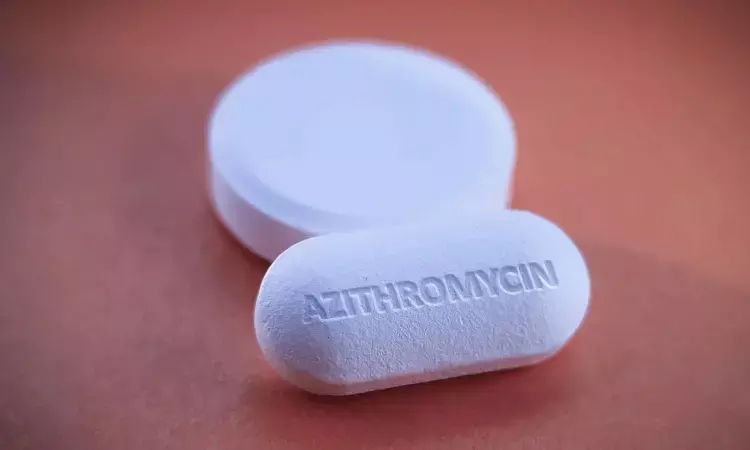- Home
- Medical news & Guidelines
- Anesthesiology
- Cardiology and CTVS
- Critical Care
- Dentistry
- Dermatology
- Diabetes and Endocrinology
- ENT
- Gastroenterology
- Medicine
- Nephrology
- Neurology
- Obstretics-Gynaecology
- Oncology
- Ophthalmology
- Orthopaedics
- Pediatrics-Neonatology
- Psychiatry
- Pulmonology
- Radiology
- Surgery
- Urology
- Laboratory Medicine
- Diet
- Nursing
- Paramedical
- Physiotherapy
- Health news
- Fact Check
- Bone Health Fact Check
- Brain Health Fact Check
- Cancer Related Fact Check
- Child Care Fact Check
- Dental and oral health fact check
- Diabetes and metabolic health fact check
- Diet and Nutrition Fact Check
- Eye and ENT Care Fact Check
- Fitness fact check
- Gut health fact check
- Heart health fact check
- Kidney health fact check
- Medical education fact check
- Men's health fact check
- Respiratory fact check
- Skin and hair care fact check
- Vaccine and Immunization fact check
- Women's health fact check
- AYUSH
- State News
- Andaman and Nicobar Islands
- Andhra Pradesh
- Arunachal Pradesh
- Assam
- Bihar
- Chandigarh
- Chattisgarh
- Dadra and Nagar Haveli
- Daman and Diu
- Delhi
- Goa
- Gujarat
- Haryana
- Himachal Pradesh
- Jammu & Kashmir
- Jharkhand
- Karnataka
- Kerala
- Ladakh
- Lakshadweep
- Madhya Pradesh
- Maharashtra
- Manipur
- Meghalaya
- Mizoram
- Nagaland
- Odisha
- Puducherry
- Punjab
- Rajasthan
- Sikkim
- Tamil Nadu
- Telangana
- Tripura
- Uttar Pradesh
- Uttrakhand
- West Bengal
- Medical Education
- Industry
Azithromycin no better than placebo for COVID treatment, finds study

LOS ANGELES: The commonly prescribed antibiotic for Covid-19, azithromycin, is no more effective than a placebo in preventing the viral disease among non-hospitalized patients, and may in fact increase their chance of hospitalization, a study has found.
The research, published in the Journal of the American Medical Association, included 263 participants who all tested positive for SARS-CoV-2, the virus which causes Covid-19, within seven days before entering the study.
Also Read:New York Study Shows Doxycycline Treatment effective in high-risk COVID patients
None of the participants were hospitalized at the time of enrolment.
The researchers at the University of California, San Francisco (UCSF) and Stanford University in the US randomly selected 171 participants to receive a single, 1.2-gram oral dose of azithromycin and 92 received an identical placebo.
On day 14 of the study, 50 percent of the participants remained symptom-free in both groups.
By day 21, five of the participants who received azithromycin had been hospitalized with severe symptoms of Covid-19 and none of the placebo group had been hospitalized.
"Among outpatients with SARS-CoV-2 infection, treatment with a single dose of oral azithromycin compared with placebo did not result in a greater likelihood of being free of symptoms at day 14," the authors wrote in the study.
The researchers concluded that treatment with a single dose of azithromycin compared to placebo did not result in a greater likelihood of being symptom-free.
"These findings do not support the routine use of azithromycin for outpatient SARS-CoV-2 infection," said study lead author Catherine E. Oldenburg, an assistant professor at UCSF.
"The hypothesis is that it has anti-inflammatory properties that may help prevent progression if treated early in the disease. We did not find this to be the case," Oldenburg said.
Azithromycin, a broad-spectrum antibiotic, is widely prescribed as a treatment for Covid-19 around the world.
Most of the trials done so far with azithromycin have focused on hospitalized patients with pretty severe disease, the researchers said.
"Our paper is one of the first placebo-controlled studies showing no role for azithromycin in outpatients," Oldenburg added.
Medical Dialogues Bureau consists of a team of passionate medical/scientific writers, led by doctors and healthcare researchers. Our team efforts to bring you updated and timely news about the important happenings of the medical and healthcare sector. Our editorial team can be reached at editorial@medicaldialogues.in.


